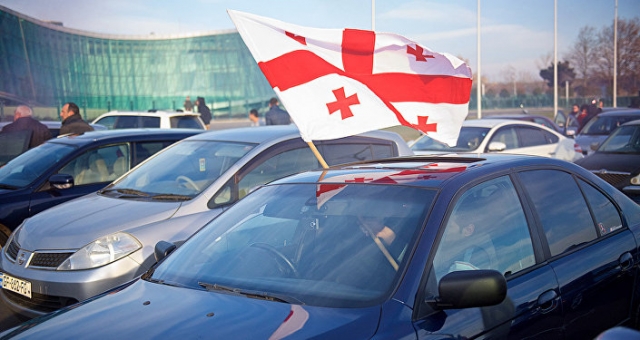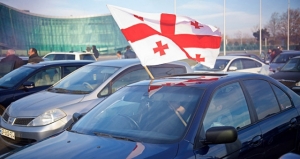A Choice We Have to Make
TBILISI - Several months ago a program proposed by the Ministry of Internal Affairs caused a divergent reaction.
One of the paragraphs in the amendments attracted the most attention, one that applies to importing and the registration of right-hand-drive cars.
Some people consider it to be a violation of human rights, of causing a new economic problem.
The aim of this article is to show society the consequences that lie in store for a country in an economic way if the current situation and policy in the transport sphere do not change.
Neither society nor politicians or business have been able to pay proper attention to transport and traffic safety in Georgia for years. On one side everyone sees its importance for employment and economic development, though no one is willing to see the negative consequences that chaotic and unplanned traffic can cause.
The average number of injured people from traffic collisions is about 9 000 people a year. Besides family tragedy the government spends hundreds of millions GEL fixing the traffic after the collision; for the improvement of the situation in this field the most important thing is the development a social-economical situation of a country.
The transport in our cities is one of the main causes of air-pollution. It has turned into a public health problem. Lack of parking policy, traffic jams, and poor service of public transport, noise and the safety of pedestrians –are a short list of those problems that should be settled now.
Moreover, the unbalanced and unorganized transport as well public as private ones is becoming more and more of a hindrance factor for the development of a country.
Georgia has a lot of challenges in the field of traffic and transport safety. The right-hand-car is one of the elements of these problems that should be solved in time.
According to “Saqstat” data, in 2014 the import of right-hand-cars from Japan amounted to 40 % and its number is getting increased yearly.
Currently, a total number of a right-hand-drive cars amounts to 30 % of the overall number of cars on the roads. If nothing is changed in 5 years’ time it will amount to 70 % and the government will be forced to alter the infrastructure, legislation, technique regulations and legalize right-hand traffic, like in Samoa in 2009.
This will be the second case in the last 50 years in the world when a country alters the traffic side. Will Georgia profit from this change? Generally the co-existence of such proportion of the variety of the traffic (right-hand and left hand ones) in Georgia make visitors surprised and they could even hardly answer on the question-whether other countries have an experience like this one.
It is worth noting that adjacent counties to Georgia and also EU countries have right-hand traffic and if Georgia is made to use right-hand-cars it would not be economically profitable for the country and population as well. The following would happen in Georgia:
1. Alteration of traffic infrastructure that would cost hundreds of millions of GEL.
2. This alteration will restrict the transit function of Georgia significantly.
For instance- Sweden is among the top 3 counties, together with England and Holland, that has found a radical decision.
Georgia must choose one-side traffic; this is an international standard. 90 % of countries use right-hand traffic (a left-hand drive car).
Could you imagine the problem a foreigner will face if we change the traffic side? Problems will arise for Georgians in Turkey and Azerbaijan or in other countries to move.
Samoa is neighboring to those countries that have a right-hand drive car but we have the opposite problem in Georgia. We do not speak about the drivers’ qualification and it is known that drivers of a right-hand car are more careful.
Author: Gela Kvashilava
Though there are a lot of risks and drivers have to do some of the risky maneuver that is more dangerous for a right-hand drive car.Gela Kvashilava is the founder the Partnership for Road Safety fund (http://safedrive.ge), advisory council member and regional consultant of the British organization Eastern Alliance for Safe and Sustainable Transport (www.easst.co.uk), expert at the EU TRACECA road safety project.












